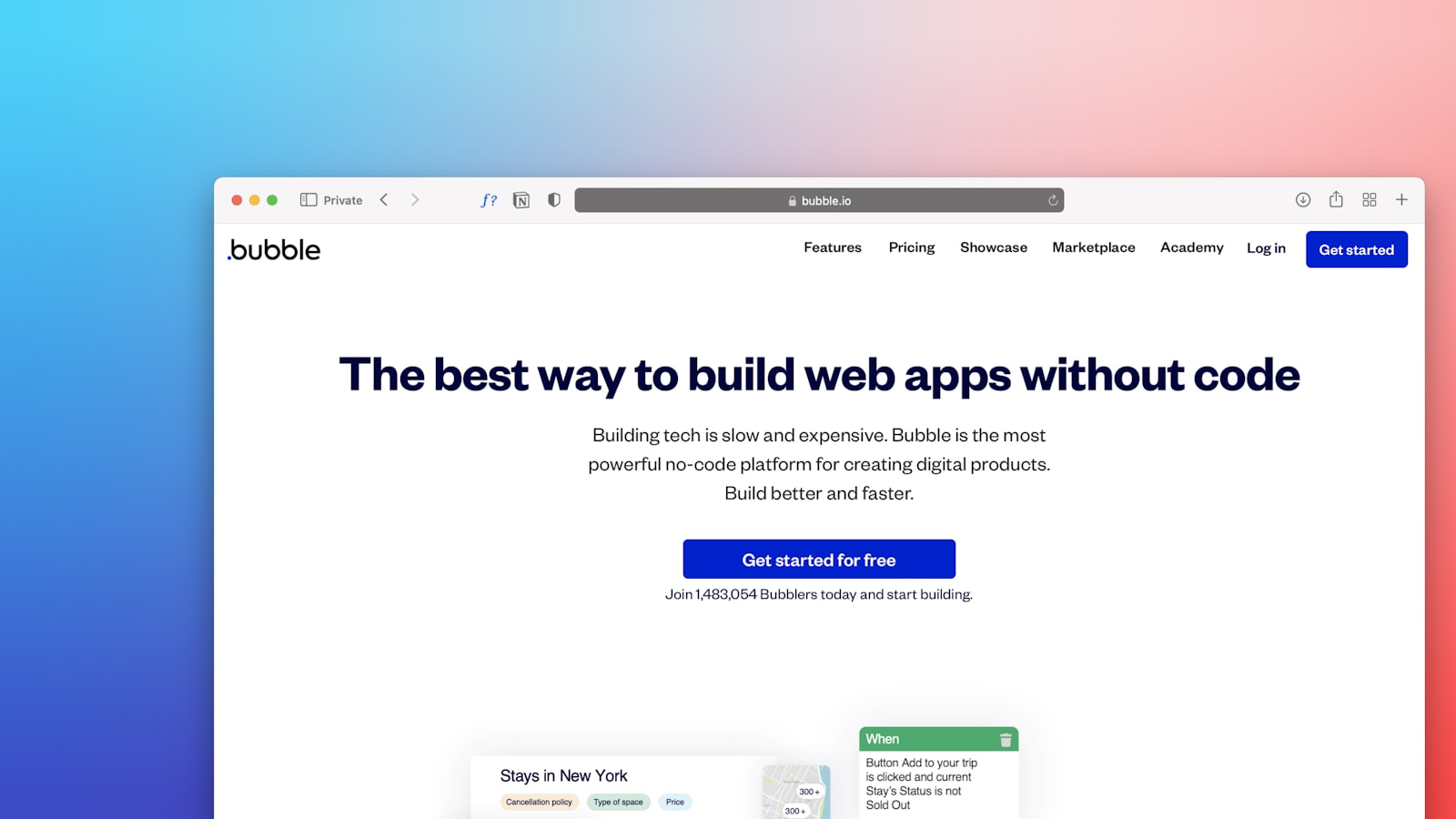Decoding Marketing Acronyms- A Beginner's Guide
Decoding Marketing Acronyms- A Beginner's Guide
Decoding Marketing Acronyms- A Beginner's Guide
Discover the essential marketing acronyms with our beginner's guide. Simplify your marketing lingo and boost your knowledge effortlessly.
Discover the essential marketing acronyms with our beginner's guide. Simplify your marketing lingo and boost your knowledge effortlessly.



Introduction
The Importance of Understanding Marketing Acronyms
Feeling lost in a sea of marketing acronyms? You're not alone. From SEO to PPC, the marketing world is jam-packed with abbreviations that can make your head spin faster than a hamster on a wheel. But don't worry, we've got your back. Understanding these acronyms isn't just about speaking the lingo – it's about unlocking the secrets to smarter marketing strategies and driving your business forward.
How This Guide Will Help You
Welcome to your ultimate beginner's guide to marketing acronyms. Whether you're just dipping your toes into the marketing pool or you've been swimming with the sharks for a while, this guide is your life raft. We'll break down the most common acronyms, provide a handy glossary of terms, and give you practical examples that make it all click. No fluff, no jargon – just clear, concise explanations that will have you speaking like a marketing pro in no time.
Ready to decode the mysteries of marketing acronyms? Let's dive in!
What Are Marketing Acronyms?

Definition and Purpose
Marketing acronyms are shorthand terms used to simplify communication within the industry. They help professionals quickly convey complex concepts without using long phrases. For example, instead of saying Search Engine Optimization, we use SEO. This not only saves time but also ensures everyone is on the same page.
The primary purpose of these acronyms is to streamline conversations and documentation. They are especially useful in meetings, reports, and emails where brevity is key. By using these acronyms, marketing teams can enhance their efficiency and focus on strategic tasks.
Historical Context and Evolution
Marketing acronyms have been around for decades, evolving alongside the industry. In the early days of marketing, terms like USP (Unique Selling Proposition) and ROI (Return on Investment) were among the first to gain popularity. As marketing strategies grew more sophisticated, so did the acronyms.
With the rise of digital marketing, a whole new set of acronyms emerged. Terms like SEO, PPC (Pay-Per-Click), and CRO (Conversion Rate Optimization) became commonplace. These acronyms reflect the industry's shift towards online platforms and data-driven strategies.
For a deeper dive into the evolution of digital marketing, check out our complete guide to digital marketing.
Common Misunderstandings
Despite their usefulness, marketing acronyms can sometimes lead to confusion. One common misunderstanding is the assumption that everyone knows what they mean. This can create communication gaps, especially for newcomers to the field.
Another issue is the misuse of acronyms. For example, mixing up SEO with SEM (Search Engine Marketing) can lead to strategic errors. It's crucial to understand the specific definitions and applications of each acronym to avoid such pitfalls.
To build a solid foundation in SEO and avoid common mistakes, explore our SEO training resources.
Why You Should Know Digital Marketing Acronyms

Enhancing Communication in the Industry
Imagine being in a meeting where everyone is throwing around terms like SEO, PPC, and CRM. If you don't know these acronyms, you'll feel like you're in a foreign language class. Knowing digital marketing acronyms helps you understand and participate in industry conversations confidently.
For instance, when discussing SEO strategies, you'll need to understand terms like CTR (Clickthrough Rate) and CPC (Cost-Per-Click) to contribute meaningfully. This knowledge ensures you're on the same page with colleagues and clients, making communication smoother and more effective.
Building and Navigating a Marketing Career
Want to climb the marketing career ladder? Knowing your acronyms is a must. Employers look for candidates who can hit the ground running, and understanding industry jargon is a big part of that. Whether you're applying for a job in SEO or content marketing, being fluent in marketing acronyms can set you apart from the competition.
Moreover, understanding these terms helps you navigate your career more effectively. You'll be able to follow industry trends, understand job requirements better, and communicate your skills and experience more clearly during interviews.
Improving Professionalism and Authority
Let's face it: using the right acronyms makes you sound like a pro. It shows that you're well-versed in the field and up-to-date with industry standards. This can significantly improve your professionalism and authority, whether you're talking to clients, colleagues, or superiors.
For example, if you're discussing a marketing campaign and can fluently use terms like KPI (Key Performance Indicator) and ROI (Return on Investment), you'll come across as knowledgeable and credible. This can lead to more trust and respect from your peers and clients.
In summary, knowing digital marketing acronyms is more than just jargon; it's a vital skill for effective communication, career advancement, and professional credibility. So, next time you hear a new acronym, take a moment to learn it. Your future self will thank you.
Essential Marketing Acronyms You Must Know
SEO (Search Engine Optimization)
SEO stands for Search Engine Optimization. It's the practice of optimizing your website to rank higher on search engine results pages (SERPs). The goal is to increase organic (non-paid) traffic to your site. For more on SEO basics, check out our SEO training courses and resources.
PPC (Pay-Per-Click)
PPC, or Pay-Per-Click, is an online advertising model where advertisers pay each time a user clicks on one of their ads. Google Ads is a common platform for PPC campaigns. If you're new to PPC, our complete guide to digital marketing can help you get started.
CRM (Customer Relationship Management)
CRM stands for Customer Relationship Management. It's a strategy and technology used to manage interactions with current and potential customers. CRM systems help businesses improve customer relationships, streamline processes, and increase profitability. Learn more about CRM in our SEO checklist.
CTA (Call-to-Action)
CTA, or Call-to-Action, refers to prompts on a website that encourage users to take a specific action, such as Buy Now or Sign Up. Effective CTAs are crucial for guiding users through the conversion funnel. For tips on creating compelling CTAs, visit our SEO strategy guide.
ROI (Return on Investment)
ROI stands for Return on Investment. It's a performance measure used to evaluate the efficiency or profitability of an investment. ROI is calculated by dividing the net profit by the cost of the investment. To understand how SEO can impact your ROI, read our step-by-step guide to SEO for small businesses.
KPI (Key Performance Indicator)
KPI stands for Key Performance Indicator. These are measurable values that demonstrate how effectively a company is achieving key business objectives. KPIs help organizations understand if they're on track to meet their goals. For a deeper dive into KPIs and how to track them, check out our guide on SEO specialists.

Advanced Marketing Acronyms for Professionals
A/B Testing
A/B Testing, also known as split testing, is a method of comparing two versions of a webpage or app against each other to determine which one performs better. By showing different versions to different segments of users, marketers can analyze which version yields better results, such as higher conversion rates or lower bounce rates.

SEM (Search Engine Marketing)
SEM, or Search Engine Marketing, involves promoting websites by increasing their visibility in search engine results pages (SERPs) primarily through paid advertising. This can include pay-per-click (PPC) ads, display ads, and other forms of paid search marketing. For a deeper dive into SEO, check out our SEO basics guide.
CRO (Conversion Rate Optimization)
Conversion Rate Optimization (CRO) is the process of improving the percentage of visitors to a website that convert into customers or take a desired action. Techniques include A/B testing, user feedback, and analytics to understand user behavior and make data-driven decisions to enhance conversion rates.
UX/UI (User Experience/User Interface)
UX (User Experience) and UI (User Interface) are critical components in designing websites and applications. UX focuses on the overall experience a user has with a product, while UI deals with the specific interface elements users interact with. Together, they ensure a product is both functional and enjoyable to use.
SMM (Social Media Marketing)
Social Media Marketing (SMM) involves using social media platforms to promote products or services. This includes creating content, engaging with followers, running ads, and analyzing performance metrics. For beginners, our complete guide to digital marketing is a great starting point.
API (Application Programming Interface)
An API, or Application Programming Interface, is a set of rules that allows different software applications to communicate with each other. APIs are essential for integrating various systems, enabling data exchange, and enhancing functionality without needing to build features from scratch.
Industry-Specific Marketing Acronyms
B2B (Business-to-Business)
B2B refers to businesses that sell products or services to other businesses. Think of software companies providing enterprise solutions or manufacturers supplying parts to automotive companies. Understanding B2B marketing is crucial for targeting the right audience and crafting messages that resonate with business clients.
B2C (Business-to-Consumer)
B2C involves businesses selling directly to consumers. Examples include retail stores, e-commerce websites, and restaurants. B2C marketing focuses on creating a strong brand presence and engaging with customers through various channels like social media and email marketing.
SaaS (Software-as-a-Service)
SaaS is a software distribution model where applications are hosted by a service provider and made available to customers over the internet. Popular examples include Google Workspace and Salesforce. SaaS marketing involves strategies to attract and retain customers through subscriptions and ongoing service improvements.
CMS (Content Management System)
A CMS is software that allows users to create, manage, and modify content on a website without needing specialized technical knowledge. WordPress and Joomla are popular CMS platforms. For more on how CMS can boost your digital marketing efforts, check out our SEO training courses and resources.
SLA (Service Level Agreement)
An SLA is a contract between a service provider and a customer that outlines the expected level of service. It includes metrics like uptime, response time, and issue resolution. SLAs are essential in maintaining trust and setting clear expectations in B2B relationships.

How to Stay Updated and Continue Learning
Resources and Tools
Keeping up with the latest in marketing requires using the right resources and tools. Here are some essentials:
Industry Blogs: Regularly read blogs like The Rank Rebel's Complete Guide to Digital Marketing to stay informed.
Online Courses: Platforms like Coursera, Udemy, and LinkedIn Learning offer courses on various marketing topics.
Webinars and Podcasts: Engage with webinars and podcasts from industry leaders to get insights on the latest trends.
Newsletters: Subscribe to newsletters from trusted sources to get updates delivered straight to your inbox.
Networking and Professional Groups
Connecting with peers and industry professionals can provide valuable insights and opportunities:
Join Professional Groups: Participate in groups on LinkedIn or Facebook to discuss trends and share knowledge.
Attend Conferences: Events like MozCon and Content Marketing World are great for networking and learning.
Local Meetups: Look for local marketing meetups to connect with professionals in your area.
Online Forums: Engage in forums like Reddit’s r/marketing or specialized Slack channels.
Continuous Education and Certifications
Investing in continuous education and obtaining certifications can boost your credibility and knowledge:
Certifications: Earn certifications from Google Analytics, HubSpot, or SEMrush to validate your skills.
Advanced Degrees: Consider pursuing an MBA or a specialized degree in marketing.
Workshops and Bootcamps: Participate in intensive workshops or bootcamps to gain hands-on experience.
Read Industry Books: Stay updated by reading books from marketing experts like Seth Godin and Neil Patel.

For more on SEO and digital marketing fundamentals, check out SEO Training: Courses and Resources for Beginners and Pros.
Conclusion
Recap of Key Points
We've journeyed through the labyrinth of marketing acronyms, breaking down complex terms into digestible bits. Here's a quick refresher:
SEO (Search Engine Optimization): Boosts your website's visibility on search engines.
PPC (Pay-Per-Click): A model where advertisers pay each time their ad is clicked.
CRM (Customer Relationship Management): Manages a company's interactions with current and potential customers.
CTA (Call-to-Action): Encourages users to take a specific action.
ROI (Return on Investment): Measures the profitability of an investment.
KPI (Key Performance Indicator): Evaluates the success of an activity.
Encouragement to Apply Knowledge
Now that you're armed with these marketing acronyms, it's time to put them to work. Whether you're crafting a new campaign, analyzing performance metrics, or just trying to sound like you know what you're talking about in a meeting, these terms will be your trusty sidekicks. Remember, knowledge is power, but applied knowledge is a superpower.
Additional Resources and Next Steps
Don't stop here! Continue expanding your marketing vocabulary and skills with these resources:
Keep learning, keep growing, and soon you'll be the marketing acronym guru in your team. Happy marketing!

Introduction
The Importance of Understanding Marketing Acronyms
Feeling lost in a sea of marketing acronyms? You're not alone. From SEO to PPC, the marketing world is jam-packed with abbreviations that can make your head spin faster than a hamster on a wheel. But don't worry, we've got your back. Understanding these acronyms isn't just about speaking the lingo – it's about unlocking the secrets to smarter marketing strategies and driving your business forward.
How This Guide Will Help You
Welcome to your ultimate beginner's guide to marketing acronyms. Whether you're just dipping your toes into the marketing pool or you've been swimming with the sharks for a while, this guide is your life raft. We'll break down the most common acronyms, provide a handy glossary of terms, and give you practical examples that make it all click. No fluff, no jargon – just clear, concise explanations that will have you speaking like a marketing pro in no time.
Ready to decode the mysteries of marketing acronyms? Let's dive in!
What Are Marketing Acronyms?

Definition and Purpose
Marketing acronyms are shorthand terms used to simplify communication within the industry. They help professionals quickly convey complex concepts without using long phrases. For example, instead of saying Search Engine Optimization, we use SEO. This not only saves time but also ensures everyone is on the same page.
The primary purpose of these acronyms is to streamline conversations and documentation. They are especially useful in meetings, reports, and emails where brevity is key. By using these acronyms, marketing teams can enhance their efficiency and focus on strategic tasks.
Historical Context and Evolution
Marketing acronyms have been around for decades, evolving alongside the industry. In the early days of marketing, terms like USP (Unique Selling Proposition) and ROI (Return on Investment) were among the first to gain popularity. As marketing strategies grew more sophisticated, so did the acronyms.
With the rise of digital marketing, a whole new set of acronyms emerged. Terms like SEO, PPC (Pay-Per-Click), and CRO (Conversion Rate Optimization) became commonplace. These acronyms reflect the industry's shift towards online platforms and data-driven strategies.
For a deeper dive into the evolution of digital marketing, check out our complete guide to digital marketing.
Common Misunderstandings
Despite their usefulness, marketing acronyms can sometimes lead to confusion. One common misunderstanding is the assumption that everyone knows what they mean. This can create communication gaps, especially for newcomers to the field.
Another issue is the misuse of acronyms. For example, mixing up SEO with SEM (Search Engine Marketing) can lead to strategic errors. It's crucial to understand the specific definitions and applications of each acronym to avoid such pitfalls.
To build a solid foundation in SEO and avoid common mistakes, explore our SEO training resources.
Why You Should Know Digital Marketing Acronyms

Enhancing Communication in the Industry
Imagine being in a meeting where everyone is throwing around terms like SEO, PPC, and CRM. If you don't know these acronyms, you'll feel like you're in a foreign language class. Knowing digital marketing acronyms helps you understand and participate in industry conversations confidently.
For instance, when discussing SEO strategies, you'll need to understand terms like CTR (Clickthrough Rate) and CPC (Cost-Per-Click) to contribute meaningfully. This knowledge ensures you're on the same page with colleagues and clients, making communication smoother and more effective.
Building and Navigating a Marketing Career
Want to climb the marketing career ladder? Knowing your acronyms is a must. Employers look for candidates who can hit the ground running, and understanding industry jargon is a big part of that. Whether you're applying for a job in SEO or content marketing, being fluent in marketing acronyms can set you apart from the competition.
Moreover, understanding these terms helps you navigate your career more effectively. You'll be able to follow industry trends, understand job requirements better, and communicate your skills and experience more clearly during interviews.
Improving Professionalism and Authority
Let's face it: using the right acronyms makes you sound like a pro. It shows that you're well-versed in the field and up-to-date with industry standards. This can significantly improve your professionalism and authority, whether you're talking to clients, colleagues, or superiors.
For example, if you're discussing a marketing campaign and can fluently use terms like KPI (Key Performance Indicator) and ROI (Return on Investment), you'll come across as knowledgeable and credible. This can lead to more trust and respect from your peers and clients.
In summary, knowing digital marketing acronyms is more than just jargon; it's a vital skill for effective communication, career advancement, and professional credibility. So, next time you hear a new acronym, take a moment to learn it. Your future self will thank you.
Essential Marketing Acronyms You Must Know
SEO (Search Engine Optimization)
SEO stands for Search Engine Optimization. It's the practice of optimizing your website to rank higher on search engine results pages (SERPs). The goal is to increase organic (non-paid) traffic to your site. For more on SEO basics, check out our SEO training courses and resources.
PPC (Pay-Per-Click)
PPC, or Pay-Per-Click, is an online advertising model where advertisers pay each time a user clicks on one of their ads. Google Ads is a common platform for PPC campaigns. If you're new to PPC, our complete guide to digital marketing can help you get started.
CRM (Customer Relationship Management)
CRM stands for Customer Relationship Management. It's a strategy and technology used to manage interactions with current and potential customers. CRM systems help businesses improve customer relationships, streamline processes, and increase profitability. Learn more about CRM in our SEO checklist.
CTA (Call-to-Action)
CTA, or Call-to-Action, refers to prompts on a website that encourage users to take a specific action, such as Buy Now or Sign Up. Effective CTAs are crucial for guiding users through the conversion funnel. For tips on creating compelling CTAs, visit our SEO strategy guide.
ROI (Return on Investment)
ROI stands for Return on Investment. It's a performance measure used to evaluate the efficiency or profitability of an investment. ROI is calculated by dividing the net profit by the cost of the investment. To understand how SEO can impact your ROI, read our step-by-step guide to SEO for small businesses.
KPI (Key Performance Indicator)
KPI stands for Key Performance Indicator. These are measurable values that demonstrate how effectively a company is achieving key business objectives. KPIs help organizations understand if they're on track to meet their goals. For a deeper dive into KPIs and how to track them, check out our guide on SEO specialists.

Advanced Marketing Acronyms for Professionals
A/B Testing
A/B Testing, also known as split testing, is a method of comparing two versions of a webpage or app against each other to determine which one performs better. By showing different versions to different segments of users, marketers can analyze which version yields better results, such as higher conversion rates or lower bounce rates.

SEM (Search Engine Marketing)
SEM, or Search Engine Marketing, involves promoting websites by increasing their visibility in search engine results pages (SERPs) primarily through paid advertising. This can include pay-per-click (PPC) ads, display ads, and other forms of paid search marketing. For a deeper dive into SEO, check out our SEO basics guide.
CRO (Conversion Rate Optimization)
Conversion Rate Optimization (CRO) is the process of improving the percentage of visitors to a website that convert into customers or take a desired action. Techniques include A/B testing, user feedback, and analytics to understand user behavior and make data-driven decisions to enhance conversion rates.
UX/UI (User Experience/User Interface)
UX (User Experience) and UI (User Interface) are critical components in designing websites and applications. UX focuses on the overall experience a user has with a product, while UI deals with the specific interface elements users interact with. Together, they ensure a product is both functional and enjoyable to use.
SMM (Social Media Marketing)
Social Media Marketing (SMM) involves using social media platforms to promote products or services. This includes creating content, engaging with followers, running ads, and analyzing performance metrics. For beginners, our complete guide to digital marketing is a great starting point.
API (Application Programming Interface)
An API, or Application Programming Interface, is a set of rules that allows different software applications to communicate with each other. APIs are essential for integrating various systems, enabling data exchange, and enhancing functionality without needing to build features from scratch.
Industry-Specific Marketing Acronyms
B2B (Business-to-Business)
B2B refers to businesses that sell products or services to other businesses. Think of software companies providing enterprise solutions or manufacturers supplying parts to automotive companies. Understanding B2B marketing is crucial for targeting the right audience and crafting messages that resonate with business clients.
B2C (Business-to-Consumer)
B2C involves businesses selling directly to consumers. Examples include retail stores, e-commerce websites, and restaurants. B2C marketing focuses on creating a strong brand presence and engaging with customers through various channels like social media and email marketing.
SaaS (Software-as-a-Service)
SaaS is a software distribution model where applications are hosted by a service provider and made available to customers over the internet. Popular examples include Google Workspace and Salesforce. SaaS marketing involves strategies to attract and retain customers through subscriptions and ongoing service improvements.
CMS (Content Management System)
A CMS is software that allows users to create, manage, and modify content on a website without needing specialized technical knowledge. WordPress and Joomla are popular CMS platforms. For more on how CMS can boost your digital marketing efforts, check out our SEO training courses and resources.
SLA (Service Level Agreement)
An SLA is a contract between a service provider and a customer that outlines the expected level of service. It includes metrics like uptime, response time, and issue resolution. SLAs are essential in maintaining trust and setting clear expectations in B2B relationships.

How to Stay Updated and Continue Learning
Resources and Tools
Keeping up with the latest in marketing requires using the right resources and tools. Here are some essentials:
Industry Blogs: Regularly read blogs like The Rank Rebel's Complete Guide to Digital Marketing to stay informed.
Online Courses: Platforms like Coursera, Udemy, and LinkedIn Learning offer courses on various marketing topics.
Webinars and Podcasts: Engage with webinars and podcasts from industry leaders to get insights on the latest trends.
Newsletters: Subscribe to newsletters from trusted sources to get updates delivered straight to your inbox.
Networking and Professional Groups
Connecting with peers and industry professionals can provide valuable insights and opportunities:
Join Professional Groups: Participate in groups on LinkedIn or Facebook to discuss trends and share knowledge.
Attend Conferences: Events like MozCon and Content Marketing World are great for networking and learning.
Local Meetups: Look for local marketing meetups to connect with professionals in your area.
Online Forums: Engage in forums like Reddit’s r/marketing or specialized Slack channels.
Continuous Education and Certifications
Investing in continuous education and obtaining certifications can boost your credibility and knowledge:
Certifications: Earn certifications from Google Analytics, HubSpot, or SEMrush to validate your skills.
Advanced Degrees: Consider pursuing an MBA or a specialized degree in marketing.
Workshops and Bootcamps: Participate in intensive workshops or bootcamps to gain hands-on experience.
Read Industry Books: Stay updated by reading books from marketing experts like Seth Godin and Neil Patel.

For more on SEO and digital marketing fundamentals, check out SEO Training: Courses and Resources for Beginners and Pros.
Conclusion
Recap of Key Points
We've journeyed through the labyrinth of marketing acronyms, breaking down complex terms into digestible bits. Here's a quick refresher:
SEO (Search Engine Optimization): Boosts your website's visibility on search engines.
PPC (Pay-Per-Click): A model where advertisers pay each time their ad is clicked.
CRM (Customer Relationship Management): Manages a company's interactions with current and potential customers.
CTA (Call-to-Action): Encourages users to take a specific action.
ROI (Return on Investment): Measures the profitability of an investment.
KPI (Key Performance Indicator): Evaluates the success of an activity.
Encouragement to Apply Knowledge
Now that you're armed with these marketing acronyms, it's time to put them to work. Whether you're crafting a new campaign, analyzing performance metrics, or just trying to sound like you know what you're talking about in a meeting, these terms will be your trusty sidekicks. Remember, knowledge is power, but applied knowledge is a superpower.
Additional Resources and Next Steps
Don't stop here! Continue expanding your marketing vocabulary and skills with these resources:
Keep learning, keep growing, and soon you'll be the marketing acronym guru in your team. Happy marketing!

Introduction
The Importance of Understanding Marketing Acronyms
Feeling lost in a sea of marketing acronyms? You're not alone. From SEO to PPC, the marketing world is jam-packed with abbreviations that can make your head spin faster than a hamster on a wheel. But don't worry, we've got your back. Understanding these acronyms isn't just about speaking the lingo – it's about unlocking the secrets to smarter marketing strategies and driving your business forward.
How This Guide Will Help You
Welcome to your ultimate beginner's guide to marketing acronyms. Whether you're just dipping your toes into the marketing pool or you've been swimming with the sharks for a while, this guide is your life raft. We'll break down the most common acronyms, provide a handy glossary of terms, and give you practical examples that make it all click. No fluff, no jargon – just clear, concise explanations that will have you speaking like a marketing pro in no time.
Ready to decode the mysteries of marketing acronyms? Let's dive in!
What Are Marketing Acronyms?

Definition and Purpose
Marketing acronyms are shorthand terms used to simplify communication within the industry. They help professionals quickly convey complex concepts without using long phrases. For example, instead of saying Search Engine Optimization, we use SEO. This not only saves time but also ensures everyone is on the same page.
The primary purpose of these acronyms is to streamline conversations and documentation. They are especially useful in meetings, reports, and emails where brevity is key. By using these acronyms, marketing teams can enhance their efficiency and focus on strategic tasks.
Historical Context and Evolution
Marketing acronyms have been around for decades, evolving alongside the industry. In the early days of marketing, terms like USP (Unique Selling Proposition) and ROI (Return on Investment) were among the first to gain popularity. As marketing strategies grew more sophisticated, so did the acronyms.
With the rise of digital marketing, a whole new set of acronyms emerged. Terms like SEO, PPC (Pay-Per-Click), and CRO (Conversion Rate Optimization) became commonplace. These acronyms reflect the industry's shift towards online platforms and data-driven strategies.
For a deeper dive into the evolution of digital marketing, check out our complete guide to digital marketing.
Common Misunderstandings
Despite their usefulness, marketing acronyms can sometimes lead to confusion. One common misunderstanding is the assumption that everyone knows what they mean. This can create communication gaps, especially for newcomers to the field.
Another issue is the misuse of acronyms. For example, mixing up SEO with SEM (Search Engine Marketing) can lead to strategic errors. It's crucial to understand the specific definitions and applications of each acronym to avoid such pitfalls.
To build a solid foundation in SEO and avoid common mistakes, explore our SEO training resources.
Why You Should Know Digital Marketing Acronyms

Enhancing Communication in the Industry
Imagine being in a meeting where everyone is throwing around terms like SEO, PPC, and CRM. If you don't know these acronyms, you'll feel like you're in a foreign language class. Knowing digital marketing acronyms helps you understand and participate in industry conversations confidently.
For instance, when discussing SEO strategies, you'll need to understand terms like CTR (Clickthrough Rate) and CPC (Cost-Per-Click) to contribute meaningfully. This knowledge ensures you're on the same page with colleagues and clients, making communication smoother and more effective.
Building and Navigating a Marketing Career
Want to climb the marketing career ladder? Knowing your acronyms is a must. Employers look for candidates who can hit the ground running, and understanding industry jargon is a big part of that. Whether you're applying for a job in SEO or content marketing, being fluent in marketing acronyms can set you apart from the competition.
Moreover, understanding these terms helps you navigate your career more effectively. You'll be able to follow industry trends, understand job requirements better, and communicate your skills and experience more clearly during interviews.
Improving Professionalism and Authority
Let's face it: using the right acronyms makes you sound like a pro. It shows that you're well-versed in the field and up-to-date with industry standards. This can significantly improve your professionalism and authority, whether you're talking to clients, colleagues, or superiors.
For example, if you're discussing a marketing campaign and can fluently use terms like KPI (Key Performance Indicator) and ROI (Return on Investment), you'll come across as knowledgeable and credible. This can lead to more trust and respect from your peers and clients.
In summary, knowing digital marketing acronyms is more than just jargon; it's a vital skill for effective communication, career advancement, and professional credibility. So, next time you hear a new acronym, take a moment to learn it. Your future self will thank you.
Essential Marketing Acronyms You Must Know
SEO (Search Engine Optimization)
SEO stands for Search Engine Optimization. It's the practice of optimizing your website to rank higher on search engine results pages (SERPs). The goal is to increase organic (non-paid) traffic to your site. For more on SEO basics, check out our SEO training courses and resources.
PPC (Pay-Per-Click)
PPC, or Pay-Per-Click, is an online advertising model where advertisers pay each time a user clicks on one of their ads. Google Ads is a common platform for PPC campaigns. If you're new to PPC, our complete guide to digital marketing can help you get started.
CRM (Customer Relationship Management)
CRM stands for Customer Relationship Management. It's a strategy and technology used to manage interactions with current and potential customers. CRM systems help businesses improve customer relationships, streamline processes, and increase profitability. Learn more about CRM in our SEO checklist.
CTA (Call-to-Action)
CTA, or Call-to-Action, refers to prompts on a website that encourage users to take a specific action, such as Buy Now or Sign Up. Effective CTAs are crucial for guiding users through the conversion funnel. For tips on creating compelling CTAs, visit our SEO strategy guide.
ROI (Return on Investment)
ROI stands for Return on Investment. It's a performance measure used to evaluate the efficiency or profitability of an investment. ROI is calculated by dividing the net profit by the cost of the investment. To understand how SEO can impact your ROI, read our step-by-step guide to SEO for small businesses.
KPI (Key Performance Indicator)
KPI stands for Key Performance Indicator. These are measurable values that demonstrate how effectively a company is achieving key business objectives. KPIs help organizations understand if they're on track to meet their goals. For a deeper dive into KPIs and how to track them, check out our guide on SEO specialists.

Advanced Marketing Acronyms for Professionals
A/B Testing
A/B Testing, also known as split testing, is a method of comparing two versions of a webpage or app against each other to determine which one performs better. By showing different versions to different segments of users, marketers can analyze which version yields better results, such as higher conversion rates or lower bounce rates.

SEM (Search Engine Marketing)
SEM, or Search Engine Marketing, involves promoting websites by increasing their visibility in search engine results pages (SERPs) primarily through paid advertising. This can include pay-per-click (PPC) ads, display ads, and other forms of paid search marketing. For a deeper dive into SEO, check out our SEO basics guide.
CRO (Conversion Rate Optimization)
Conversion Rate Optimization (CRO) is the process of improving the percentage of visitors to a website that convert into customers or take a desired action. Techniques include A/B testing, user feedback, and analytics to understand user behavior and make data-driven decisions to enhance conversion rates.
UX/UI (User Experience/User Interface)
UX (User Experience) and UI (User Interface) are critical components in designing websites and applications. UX focuses on the overall experience a user has with a product, while UI deals with the specific interface elements users interact with. Together, they ensure a product is both functional and enjoyable to use.
SMM (Social Media Marketing)
Social Media Marketing (SMM) involves using social media platforms to promote products or services. This includes creating content, engaging with followers, running ads, and analyzing performance metrics. For beginners, our complete guide to digital marketing is a great starting point.
API (Application Programming Interface)
An API, or Application Programming Interface, is a set of rules that allows different software applications to communicate with each other. APIs are essential for integrating various systems, enabling data exchange, and enhancing functionality without needing to build features from scratch.
Industry-Specific Marketing Acronyms
B2B (Business-to-Business)
B2B refers to businesses that sell products or services to other businesses. Think of software companies providing enterprise solutions or manufacturers supplying parts to automotive companies. Understanding B2B marketing is crucial for targeting the right audience and crafting messages that resonate with business clients.
B2C (Business-to-Consumer)
B2C involves businesses selling directly to consumers. Examples include retail stores, e-commerce websites, and restaurants. B2C marketing focuses on creating a strong brand presence and engaging with customers through various channels like social media and email marketing.
SaaS (Software-as-a-Service)
SaaS is a software distribution model where applications are hosted by a service provider and made available to customers over the internet. Popular examples include Google Workspace and Salesforce. SaaS marketing involves strategies to attract and retain customers through subscriptions and ongoing service improvements.
CMS (Content Management System)
A CMS is software that allows users to create, manage, and modify content on a website without needing specialized technical knowledge. WordPress and Joomla are popular CMS platforms. For more on how CMS can boost your digital marketing efforts, check out our SEO training courses and resources.
SLA (Service Level Agreement)
An SLA is a contract between a service provider and a customer that outlines the expected level of service. It includes metrics like uptime, response time, and issue resolution. SLAs are essential in maintaining trust and setting clear expectations in B2B relationships.

How to Stay Updated and Continue Learning
Resources and Tools
Keeping up with the latest in marketing requires using the right resources and tools. Here are some essentials:
Industry Blogs: Regularly read blogs like The Rank Rebel's Complete Guide to Digital Marketing to stay informed.
Online Courses: Platforms like Coursera, Udemy, and LinkedIn Learning offer courses on various marketing topics.
Webinars and Podcasts: Engage with webinars and podcasts from industry leaders to get insights on the latest trends.
Newsletters: Subscribe to newsletters from trusted sources to get updates delivered straight to your inbox.
Networking and Professional Groups
Connecting with peers and industry professionals can provide valuable insights and opportunities:
Join Professional Groups: Participate in groups on LinkedIn or Facebook to discuss trends and share knowledge.
Attend Conferences: Events like MozCon and Content Marketing World are great for networking and learning.
Local Meetups: Look for local marketing meetups to connect with professionals in your area.
Online Forums: Engage in forums like Reddit’s r/marketing or specialized Slack channels.
Continuous Education and Certifications
Investing in continuous education and obtaining certifications can boost your credibility and knowledge:
Certifications: Earn certifications from Google Analytics, HubSpot, or SEMrush to validate your skills.
Advanced Degrees: Consider pursuing an MBA or a specialized degree in marketing.
Workshops and Bootcamps: Participate in intensive workshops or bootcamps to gain hands-on experience.
Read Industry Books: Stay updated by reading books from marketing experts like Seth Godin and Neil Patel.

For more on SEO and digital marketing fundamentals, check out SEO Training: Courses and Resources for Beginners and Pros.
Conclusion
Recap of Key Points
We've journeyed through the labyrinth of marketing acronyms, breaking down complex terms into digestible bits. Here's a quick refresher:
SEO (Search Engine Optimization): Boosts your website's visibility on search engines.
PPC (Pay-Per-Click): A model where advertisers pay each time their ad is clicked.
CRM (Customer Relationship Management): Manages a company's interactions with current and potential customers.
CTA (Call-to-Action): Encourages users to take a specific action.
ROI (Return on Investment): Measures the profitability of an investment.
KPI (Key Performance Indicator): Evaluates the success of an activity.
Encouragement to Apply Knowledge
Now that you're armed with these marketing acronyms, it's time to put them to work. Whether you're crafting a new campaign, analyzing performance metrics, or just trying to sound like you know what you're talking about in a meeting, these terms will be your trusty sidekicks. Remember, knowledge is power, but applied knowledge is a superpower.
Additional Resources and Next Steps
Don't stop here! Continue expanding your marketing vocabulary and skills with these resources:
Keep learning, keep growing, and soon you'll be the marketing acronym guru in your team. Happy marketing!

Need help with SEO?
Need help with SEO?
Need help with SEO?
Join our 5-day free course on how to use AI to get more traffic to your website!
Explode your organic traffic and generate red-hot leads without spending a fortune on ads
Claim the top spot on search rankings for the most lucrative keywords in your industry
Cement your position as the undisputed authority in your niche, fostering unshakable trust and loyalty
Skyrocket your conversion rates and revenue with irresistible, customer-centric content
Conquer untapped markets and expand your reach by seizing hidden keyword opportunities
Liberate your time and resources from tedious content tasks, so you can focus on scaling your business
Gain laser-sharp insights into your ideal customers' minds, enabling you to create products and content they can't resist
Harness the power of data-driven decision-making to optimize your marketing for maximum impact
Achieve unstoppable, long-term organic growth without being held hostage by algorithm updates or ad costs
Stay light-years ahead of the competition by leveraging cutting-edge AI to adapt to any market shift or customer trend
Explode your organic traffic and generate red-hot leads without spending a fortune on ads
Claim the top spot on search rankings for the most lucrative keywords in your industry
Cement your position as the undisputed authority in your niche, fostering unshakable trust and loyalty
Skyrocket your conversion rates and revenue with irresistible, customer-centric content
Conquer untapped markets and expand your reach by seizing hidden keyword opportunities
Liberate your time and resources from tedious content tasks, so you can focus on scaling your business
Gain laser-sharp insights into your ideal customers' minds, enabling you to create products and content they can't resist
Harness the power of data-driven decision-making to optimize your marketing for maximum impact
Achieve unstoppable, long-term organic growth without being held hostage by algorithm updates or ad costs
Stay light-years ahead of the competition by leveraging cutting-edge AI to adapt to any market shift or customer trend
Explode your organic traffic and generate red-hot leads without spending a fortune on ads
Claim the top spot on search rankings for the most lucrative keywords in your industry
Cement your position as the undisputed authority in your niche, fostering unshakable trust and loyalty
Skyrocket your conversion rates and revenue with irresistible, customer-centric content
Conquer untapped markets and expand your reach by seizing hidden keyword opportunities
Liberate your time and resources from tedious content tasks, so you can focus on scaling your business
Gain laser-sharp insights into your ideal customers' minds, enabling you to create products and content they can't resist
Harness the power of data-driven decision-making to optimize your marketing for maximum impact
Achieve unstoppable, long-term organic growth without being held hostage by algorithm updates or ad costs
Stay light-years ahead of the competition by leveraging cutting-edge AI to adapt to any market shift or customer trend

































































































































































































































































































































